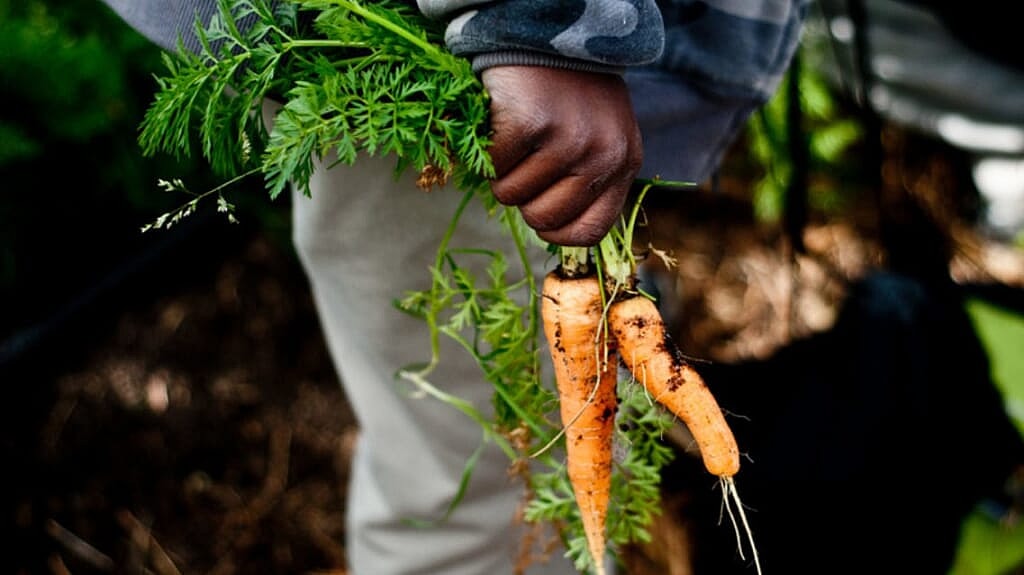In a recent interview, Secretary of Agriculture Tom Vilsack shared how he hopes the new aid given to minority farmers helps sustain them in the long-term.
Speaking with NPR,‘s Michel Martin on All Things Considered, Vilsack revealed that the $4 billion included in the American Rescue Plan to assist “socially disadvantaged” farmers with debts has a deeper purpose than COVID-19 relief. He shared his hopes that the funds can help provide justice for long-term discrimination against Black, Hispanic, Asian American, and Native American farmers.
Read More: 1 tweet from Rihanna on farmer protests gets India incensed
He said the plan, which also includes $1.01 billion to create a racial equity commission, is an “acknowledgement that acts of discrimination took place. And that you not only have the specific result of the act, but that there is a cumulative effect of being discriminated against that grows over time. And in order for us to have an equitable and a fair USDA, it’s necessary for us to address that gap.”

According to the news outlet, in 1920, Black farmers represented 14% of the total industry in the United States. Now, Black farmers are less than 2% of the industry and typically have smaller farmland. As of 2017, Black-operated farms made up only 0.5% of the total farmland in the country.
Vilsack shared how he hopes the new plan encourages more Black farmers.
“I would certainly hope that we would see an increase in Black farmers. I think we want to see an increase in farmers overall. We’ve seen an increase, frankly, in women farmers, white women farmers. … We want younger farmers. We want beginning farmers. We want returning veterans seeing the opportunity. We want people of color. We want a great diversity in American agriculture,” he said. “We don’t necessarily want only large-scale agriculture. We want the opportunity for local and regional systems, smaller and mid-sized farming operations to be successful.
Read More: Black farmers expecting change under Biden administration
Vilsack continued to explain how for farmers in general are not earning large profits on their crops.
“Here’s a statistic that is also troublesome, which suggests that we do need to look holistically at this, and that is that 89.6% of American farms today, the income from those farms is not the majority of the money made by the farmers. In other words, farmers have to have … other income, which represents a majority of what they make for a living,” he said according to NPR.
“It doesn’t come from farming. So I think that statistic suggests that we have to look at ways to create better markets and newer markets and deeper markets. We want diversity and we want diversity across the board,” he continued.

theGrio reported John Boyd, head of the National Black Farmers Association, said the allocated funding is necessary to revive the industry.
“We’re quite frankly, faced with extinction. If we can’t get a new generation of young people involved in agriculture and farming, Blacks and other farmers of color into farming, you won’t see it,” he said.
He continued to detail, “forty-six thousand Black farmers are left in this country according to the U.S. Census. We’re down from one million farm families at the turn of the century. And we were killing 20 million acres of land. We’re down to about four and a half million acres of land.”
Previously, Black farmers filed a lawsuit against the United States Department of Agriculture in the 1990s and then-President Bill Clinton awarded them payment for discriminatory practices, although the full restitution was not paid until the Barack Obama presidency.

Sen. Lindsey Graham has vocally expressed his disapproval of the fund. According to The Hill, the South Carolina rep trashed the aid as “reparations.”
“Let me give you an example of something that really bothers me. In this bill, if you’re a farmer, your loan will be forgiven up to 120 percent of your loan … if you’re socially disadvantaged, if you’re African American, some other minority. But if you’re [a] white person, if you’re a white woman, no forgiveness. That’s reparations. What does that have to do with COVID?” he asked, according to the report.
House Majority Whip James Clyburn responded to Graham, noting the historical treatment of Black people.
“We’re trying to rescue the lives and livelihoods of people. He ought to be ashamed of himself. He knows the history in this country, and he knows what happened to Black farmers… Lindsey ought to be ashamed,” he remarked.
Have you subscribed to theGrio’s podcast “Dear Culture”? Download our newest episodes now!
TheGrio is now on Apple TV, Amazon Fire, and Roku. Download theGrio today!

